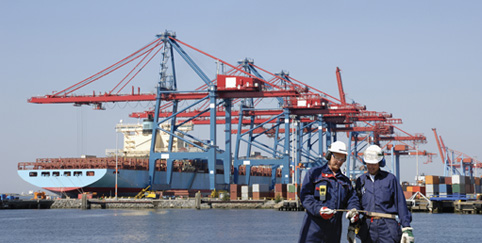But thinking about the types of problems port labor issues can cause now, should help shippers and receivers prepare for future worst case scenarios should a strike or work stoppage occur again.
Keep an eye on expiring contracts
One seemingly simple way to prepare is to monitor key contracts, including expiration dates and ongoing negotiations between unions and associations (see sidebar for more information). Following the progress of talks and concessions can help suppliers be aware of escalating tension, and begin to prepare should discussions fall apart or a strike appear imminent.
“We didn’t know what was ahead when we made the billings and set up the shipments,” says Steve Reinholt, export sales manager at Wenatchee, WA’s Oneonta Trading Corporation and Starr Ranch Growers. “If we knew it would take 56 days to get to China and Hong Kong, we wouldn’t have taken the order—instead, we delivered subpar fruit and it was late.”
Late arrivals, pricing, and lost sales
Shipping delays have a domino effect: late arrivals not only mean less desirable fruit, but affect free-on-board (f.o.b.) pricing, margins, and acceptance rates. Though this is nothing new and a common occurrence even with shorter, domestic shipments, few suppliers had ever dealt with the extreme delays caused by a port strike.
When Reinholt’s shipments finally made it to Asia, much of the fruit had “used up its shelf life sitting in the port”—and the delays were devastating for more sensitive commodities like pears. “The fruit was sold, but later, in a different market and at a lower price,” he concedes. “It’s almost impossible to put a value on it, but the losses were in the millions of dollars.”
For Robert Autenrieth, president of Los Angeles-based Autenrieth Company, it was much the same story. “We lost maybe a third to 40 percent of our income,” he states. “I stand behind our product 100 percent; with these disruptions, I would not and could not guarantee it, so I stopped shipping all together.”
Look for substitute suppliers
On the other side of the trade equation, importers felt the sting of the strike and work stoppage too. Eric Janke, vice president and chief operating officer of DiMare Fresh, Inc., in Dallas, TX notes that the West Coast slowdown resulted in reduced availability for several imported commodities, such as melons and garlic.
To fill orders, distributors and brokers were forced to find domestic sources to augment supply. “You could get the product, but you had to jump through more hoops,” Janke explains. “Procurement processes changed on specialty items, and you had make decisions in hours instead of weeks.” The resulting scramble was good for U.S. growers, but not for distributors and ultimately consumers. “It caused market prices to increase drastically,” he says.



